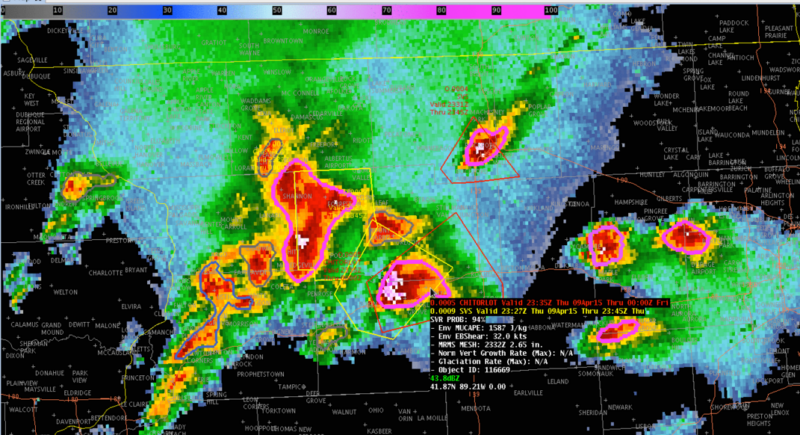
It’s become increasingly clear that quantum computers won’t have a single moment when they become clearly superior to classical hardware. Instead, we’re likely to see them becoming useful for a narrow set of problems and then gradually expand out from there to an increasing range of computations. The question obviously becomes one of where the utility will be seen first.
The quantum-computing startup Rigetti now has a white paper that identifies, at least theoretically, a case when quantum hardware should offer an advantage. And it is actually useful: replacing a neural network that’s used for analyzing weather data.
How’s the weather?
The problem the people at Rigetti looked at involves taking a partial set of weather data and inferring what the rest looks like. Plenty of areas of the planet lack good coverage, and so we only get partial information about local conditions. And, if we have things like commercial aircraft going through said remote areas, we’ll often want a more complete picture of the conditions there.
To handle this, people have trained neural networks on regions where we have more complete weather data. Once trained, the system could be fed partial data and infer what the rest was likely to be. For example, the trained system can create a likely weather radar map using things like satellite cloud images and data on lightning strikes.
This is exactly the sort of thing that neural networks do well with: recognizing patterns and inferring correlations.
What drew the Rigetti team’s attention is the fact that neural networks also map well onto quantum processors. In a typical neural network, a layer of “neurons” performs operations before forwarding its results to the next layer. The network “learns” by altering the strength of the connections among units in different layers. On a quantum processor, each qubit can perform the equivalent of an operation. The qubits also share connections among themselves, and the strength of the connection can be adjusted. So, it’s possible to implement and train a neural network on a quantum processor.
Could be better
Conveniently, some researchers at Google have worked out a metric that allows the comparison of AIs implemented on classical and quantum hardware. And Rigetti has built a 32-qubit quantum processor, so it has the ability to do the comparison. And, based on that metric, there are at least some cases when a quantum system should outperform a classical one.
Exactly what those cases are, however, remains unclear. So, the researchers experimented with a number of ways of using their quantum processor as part of a mixed quantum/classical system. They found that the system was more or less successful for different aspects of the weather data. For example, when using the quantum processor to reconstruct lightning data, they found it did a better job at lower altitudes but was generally comparable to the classical neural network.
In a separate test, they simply replaced the neural network with qubits. For lightning data, the quantum version outperformed the classical one. The tables were turned, however, when it was tested against satellite data, where classical systems were more accurate.
It’s important to emphasize that at no point did the quantum system show an actual performance advantage over the existing methods of running this sort of weather analysis; the important finding here is the indication that better performance is possible. As the Rigetti researchers themselves note, “These results are initial evidence that data in real-world [machine-learning] problems—here high dimensional weather data—can have a structure theoretically compatible with quantum advantage.”
Their ability to perform parts of the analysis on quantum hardware with decent results shows that there’s not a barrier to integrating quantum methods into this sort of analysis, as well. While this isn’t the sort of breakthrough that tends to grab attention, it is the sort of hard work that’s going to be needed to get quantum computing to live up to its potential.
https://arstechnica.com/?p=1818085

